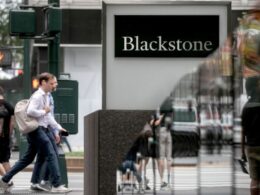Two days after Warren Buffett announced his retirement as chief executive of Berkshire Hathaway in early May, the outspoken investor Bill Ackman set in motion his plan for a rival.
As investors were still processing the future of the world’s most valuable financial company without its 94-year-old architect, Ackman trumpeted his plan: to transform Howard Hughes Holdings, a smattering of US property assets assembled by the reclusive billionaire industrialist, into a “diversified holding company” in the mould of Berkshire.
Ackman struck a deal to kick-start his endeavour four months after he initially pitched it in a letter to investors.
“With apologies to Mr Buffett, [Howard Hughes] would become a modern-day Berkshire Hathaway that would acquire controlling interests in operating companies,” Ackman said in his letter.
Under the deal with the Texas-based company, which has a $4.2bn market value, Ackman and his investment team at Pershing Square will change Howard Hughes’ strategy to focus on using its cash to buy company stakes.
But the hard-charging hedge fund manager faces long odds to pull off a high-wire act of financial engineering.
His vehicle must contend with a high cost of capital and the challenge of pivoting a property empire once dubbed a “shitco” by a rival into a dealmaking machine — all without the advantages that Buffett maximised, such as cheap financing costs and throngs of companies willing to sell to him.
Ackman has backed Howard Hughes for 15 years. But the new deal involves his Pershing Square firm investing $900mn of additional cash into the property developer, which owns sprawling suburban communities in places including Nevada, Texas and Maryland.
The deal, sealed in early May, takes Pershing Square’s holding in Howard Hughes to 47 per cent.
But the outspoken hedge fund billionaire — who was among Donald Trump’s cheerleaders as he won the US presidency last year — and his investors are already under water on the new bet.
Ackman paid $100 per share to buy the Howard Hughes shares, using cash Pershing Square raised from outside investors last year. But investors have been lukewarm on the transaction. Howard Hughes’ shares have risen since the deal was announced by about 6 per cent to $71 — slightly more than the S&P 500 in the same time, but still well below the purchase price.
Buffett turned Berkshire — once a defunct Massachusetts textile manufacturer — into a financial juggernaut by deftly funding investments using a canny bet on insurers. Ackman is now trying to pull off a similar feat, with a plan almost two decades in the making.
In 2008, Ackman opportunistically bought more than 20 per cent of General Growth as it spiralled into bankruptcy, a bet that made his fund over $1.5bn when the property giant’s crisis-era cash crunch proved temporary.
As General Growth emerged from bankruptcy, Ackman constructed a deal to spin off its vast trove of once-vacant residential land plots to form Howard Hughes. He became its largest shareholder.
The residential developments — often called “master-planned communities” — are mini suburban empires, with housing, stores, offices and recreational activities. They have schools, churches and golf courses, with tranquil names like “The Woodlands”, offering the chance to live in a privately run neighbourhood.
Ackman’s cash will initially be used to assemble investments and build an insurance company — again, like Berkshire — that will fuel acquisitions with a steady stream of premiums from policyholders.
“Unlike the state of the textile industry in America in 1965, the state of building cities in places where people live in the US in 2025 is actually an amazing business,” Ackman told the Financial Times, referring to the earliest iteration of Berkshire.
The billionaire financier has a mixed record on past M&A fuelled bets.
While Ackman’s bet on the merger of Burger King and Tim Hortons made billions, he also lost billions backing Valeant Pharmaceuticals’ plan to be a tax-advantaged pharma industry roll-up. In the 1990s, Ackman also suffered large losses on a bet to accumulate assets through First Union, a property trust. The losses contributed to the demise of his first fund, Gotham Partners.
Ackman maintains his Valeant and First Union investments were far different pursuits, made years ago, and have no bearing on his plans for Howard Hughes.
Meanwhile, Howard Hughes itself has stagnated as a publicly listed company over the past decade.
“It’s not a business that Wall Street has assigned an appropriate value to,” Ackman said. “We’re a low-investment grade company today to which equity investors have assigned a high cost of capital,” he noted — a recipe that makes acquisitions expensive to finance.
He predicted Pershing Square’s cash infusion would improve Howard Hughes’ credit rating by creating a portfolio of investments that generate earnings that would grow over time and be independent of property markets.
When Ackman was Howard Hughes’s chair from 2010 to 2024, it made a bold bet in New York City, burning through what shareholders estimate to be about $1bn in an attempt to transform the historic South Street Seaport in Lower Manhattan.
Ackman said the effort, which involved massive spending on an entertainment-and-dining mecca that failed to generate significant profits, was “probably our biggest disappointment”.
“It is all on Ackman in terms of the value destruction at the Seaport,” one large Howard Hughes shareholder said. “I don’t think there is evidence that Ackman has done a good job suggesting things for Howard Hughes to do.”
Ackman will also introduce a fee structure to Howard Hughes — unlike Berkshire, which does not charge shareholders any management or incentive fees. Pershing Square will charge a $15mm annual management fee and 1.5 per cent on per-share gains it generates above the rate of inflation.
Ackman says Howard Hughes made savvy acquisitions under his watch, such as deals to buy out partners in its communities, and that Pershing Square’s fees are lower than those in his other funds.
Some investors see Ackman’s vision for Howard Hughes as a boon for the business.
“The deal materially improves the credit profile at Howard Hughes,” said James Elbaor, the founder of hedge fund Marlton and an investor in both Howard Hughes and Ackman’s hedge fund. He added that Ackman “paid the appropriate price” and that the fee arrangement was also “very fair for Howard Hughes shareholders”.
The early steps in Ackman’s broader plan come at an economically perilous time, with huge volatility in global markets triggered by Trump’s trade and tariff policies.
Ackman sees it as an opportunity.
“I think our timing couldn’t be better,” he said. “The best time to be deploying capital and buying companies . . . is when there’s volatility and uncertainty. That’s when cash is the most valuable.”
Ackman disputes the notion that Howard Hughes carries more hurdles than Berkshire. “Our starting position relative to Berkshire in the 1960s is vastly superior,” he said. “It is the opposite of a disadvantage.”
Source link









